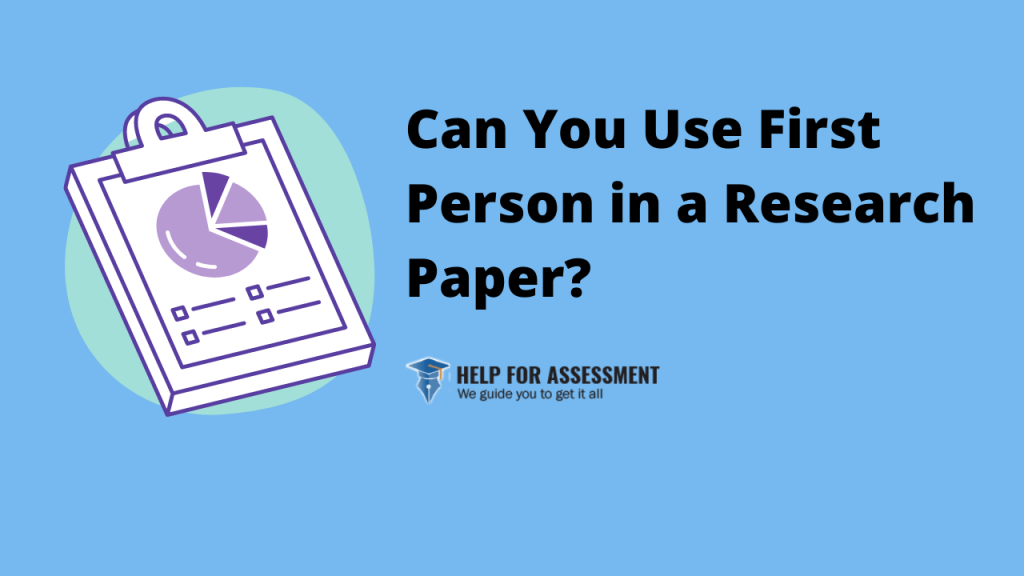Want to know more about Can I Use First Person In A Research Paper? Read this article to get the information you need.

Can I Use First Person in a Research Paper?
As an undergraduate, I was once told by my professor that academic writing necessitates the use of an impersonal writing style, devoid of subjective pronouns like “I” and “me.” For research papers, it was deemed appropriate to adopt a tone of objectivity and distance from the research subject. Yet, as I delved deeper into the world of academic writing, I encountered a growing body of literature that challenged this traditional view. It became apparent that the use of first person in research papers is not only permissible but, in certain contexts, can enhance the paper’s impact and credibility.
Before exploring the nuances of using first person in research papers, it is important to understand its fundamental principles. Academic writing, by nature, demands a level of objectivity and impartiality. This means that personal opinions and biases should be minimized to ensure that the research findings are presented in a clear and unbiased manner. First person, when used judiciously, can effectively communicate the researcher’s personal experiences, insights, and perspectives, adding depth and richness to the paper.
The Benefits of Using First Person
There are several compelling reasons why researchers may choose to incorporate first person into their papers. First and foremost, it allows the researcher to establish a more personal connection with the reader. By using “I” and “me,” the researcher can convey their own experiences, perspectives, and insights, making the paper more relatable and engaging. This can be particularly effective when discussing research that has personal significance or that involves the researcher’s own experiences as a subject.
Additionally, using first person can help to emphasize the researcher’s expertise and authority on the topic. By sharing their own experiences and insights, the researcher demonstrates their deep understanding of the subject matter and their ability to provide valuable insights. This can be especially beneficial when the researcher is presenting a unique or controversial perspective.
When to Use First Person
While using first person can be beneficial in certain contexts, it is important to exercise caution and use it judiciously. As a general rule, first person should be used sparingly and only when it adds value to the paper. Here are some specific scenarios where using first person can be particularly effective:
- When sharing personal experiences or insights relevant to the research topic.
- When emphasizing the researcher’s expertise or authority on the subject.
- When providing a unique or controversial perspective that benefits from the researcher’s personal insights.
- When reflecting on the research process or discussing the implications of the findings.
Tips for Using First Person Effectively
If you choose to use first person in your research paper, it is essential to do so in a way that is clear, concise, and professional. Here are some tips to help you use first person effectively:
- Be consistent in your use of first person throughout the paper.
- Use first person sparingly and only when it adds value to the paper.
- Avoid using first person to express personal opinions or biases.
- Use first person to convey your own experiences, insights, and perspectives.
- Proofread your paper carefully to ensure that your use of first person is clear and grammatically correct.
FAQ on Using First Person in Research Papers
Q: Is it ever acceptable to use first person in a research paper?
A: Yes, using first person can be acceptable in certain contexts, such as sharing personal experiences, emphasizing expertise, or providing unique perspectives.
Q: When should I avoid using first person in a research paper?
A: Avoid using first person when it is unnecessary, when it expresses personal opinions or biases, or when it detracts from the objectivity of the paper.
Q: How can I use first person effectively in a research paper?
A: Use first person sparingly, consistently, and with a clear purpose. Avoid using it to express personal opinions or biases, and ensure that it adds value to the paper.
Conclusion
The use of first person in research papers is a complex issue with no easy answer. While it is generally advisable to maintain an objective and impersonal writing style, there are certain situations where using first person can enhance the paper’s impact and credibility. By following the guidelines and tips outlined in this article, researchers can effectively incorporate first person into their papers, adding depth, relatability, and authority to their research.
Are you interested in learning more about using first person in research papers?

Image: www.helpforassessment.com
We express our gratitude for your visit to our site and for reading Can I Use First Person In A Research Paper. We hope this article is beneficial for you.